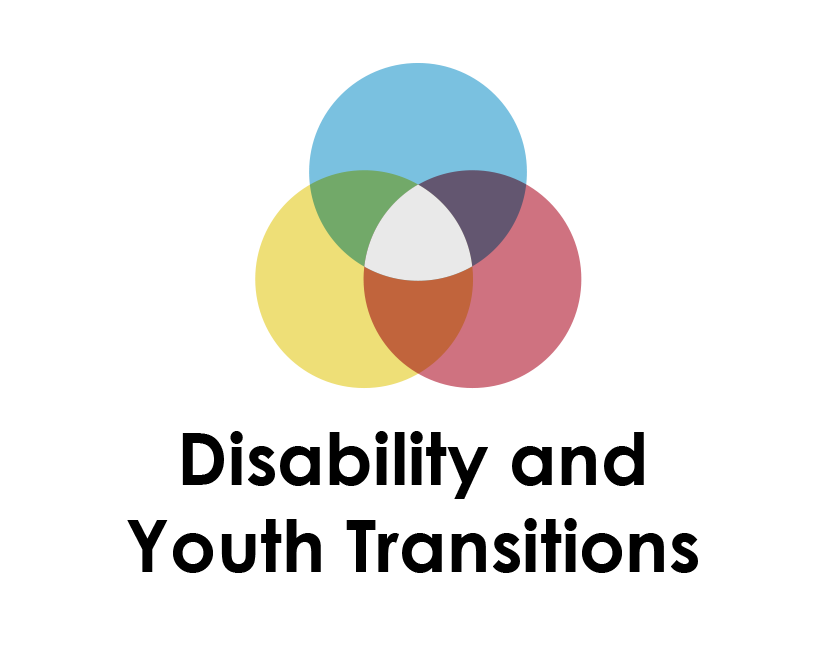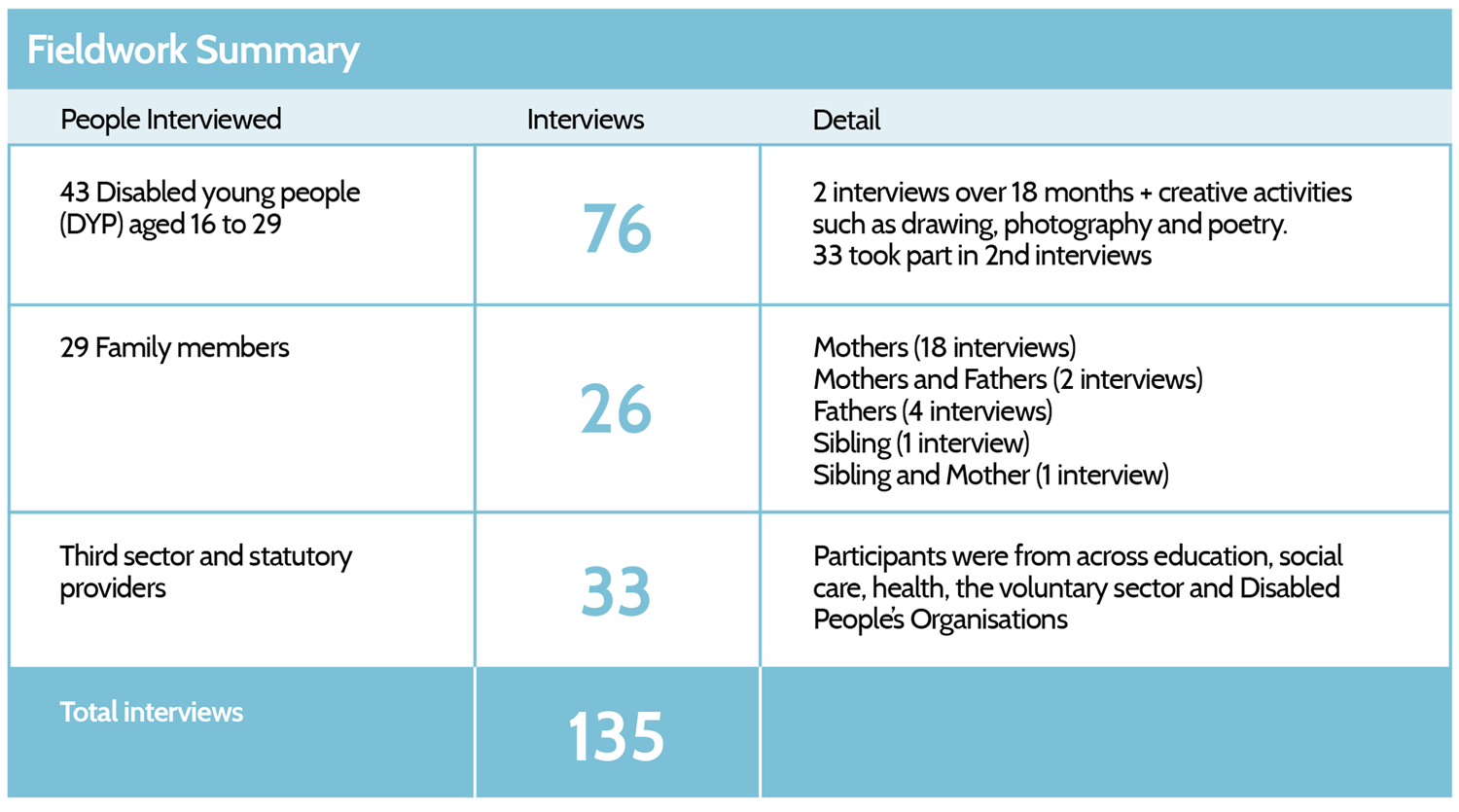About The Project
The Disability and Disabled Youth Transitions project ran from January 2023 - December 2025. Our overarching aim was to explore the experiences of disabled young people as they move towards adulthood.
There are many different things that could be important during this time – we wanted to understand what matters from the perspective of disabled young people. It could be things like planning to go to further education or university, or thinking about work, or thinking about moving home, or hoping to explore different relationships, or getting involved in different aspects of social life. It could be some or none of those things. We know that there are many things that can make becoming an adult difficult for disabled young people. Things like prejudice, physical and social barriers, lack of resources to name a few. We also know that the pandemic has not helped and now the cost of living crisis is producing other difficulties. It is important to identify anything that can help disabled young people move towards the futures they want. This can include help from services such as education and health and social care. It can also be about changing social attitudes.
Our aim was to explore all of this and then highlight what works and what doesn’t work in supporting disabled young people.
Project Advisors
To help us do the research in ways that were appropriate and relevant we worked with a range of organisations that support and advocate with disabled young people in Newcastle and Glasgow. Very importantly we also worked with some disabled young people who acted as advisors across the lifetime of the project. Our advisors fed into all aspects of how we did the work and how we made sure we identify key points to feed into policy and practice in both the research locations and beyond.
What the Research Involved
The research was undertaken in Central Scotland and North East England.
Talking with disabled young people over time about their experiences.
Exploring ways that might capture their experiences through practices such as taking photographs, or making films, or writing stories.
Bringing disabled young people together to identify differences and similarities in their experiences.
Talking with families of disabled young people and advocacy groups about their experiences of supporting disabled young people.
Here is some background information about the disabled young people we worked with:
They self-defined as having a range of impairments and needs, with the majority highlighting more than one issue. Neurodiversity and mental health issues were prominent, alongside a range of physical impairments and learning disabilities.
They had grown up with different levels of financial stability and security, including some who have grown up experiencing significant poverty and difficult family and housing situations.
They lived in city, town and rural contexts.
A third were aged 16-20/21-24/25-29.
They identified across a range of gender and sexualities categories, including female, male, trans, non-binary and gender fun, straight/heterosexual, gay/queer and bisexual; still exploring, asexual
The majority who self-defined, self-defined as white British/Scottish/Irish, while a minority identified as having a mixed British/Scottish identity (such as Scottish Italian or British Chinese).
Across the lifetime of the project some a small number remained in education and training or were volunteering, others are actively seeking employment having left education.
Of those no longer in education, only a small minority were in employment and within that even a smaller number had employment that could be described as stable and secure and offering career possibilities.
Limited demographic information was gathered from family members, but approximately half lived in areas classified as deprived.
As part of the research, we produced the following information materials that helped disabled young people and other participants understand what they were being asked to get involved with. These materials were developed with input from our Voices of Lived Experience Network (VOLE).
PDF (Screen Reader Compatible) versions of the Participation Information Sheets:
Easy Read versions of the Particpant Information:
Audio version of the information:


